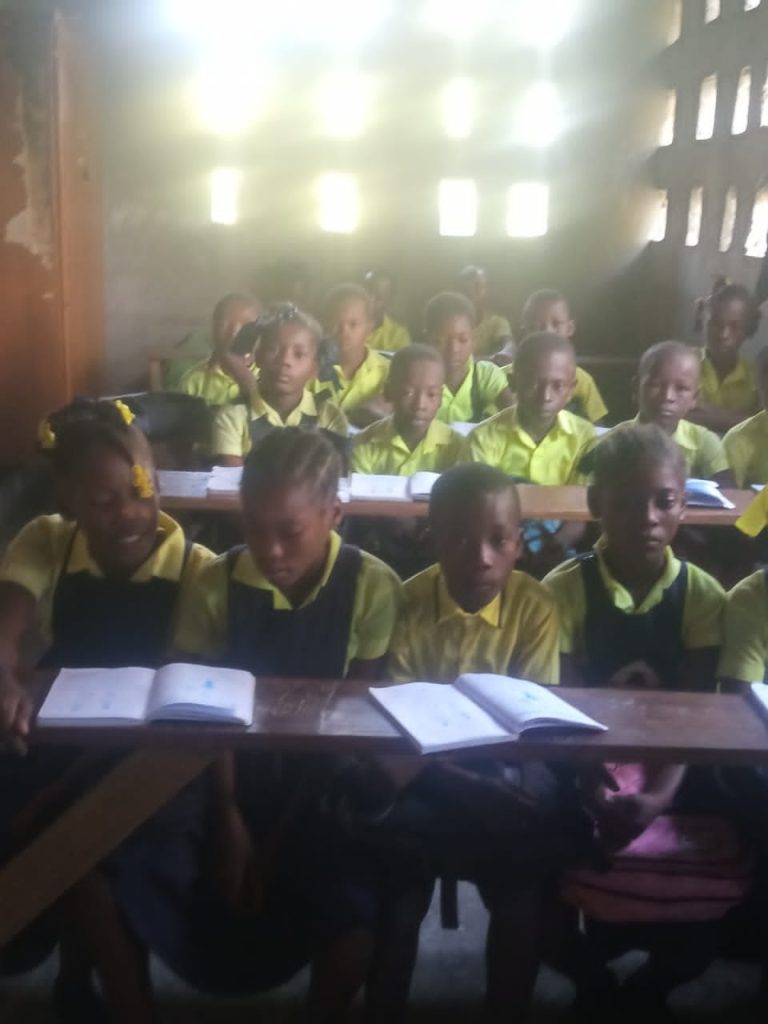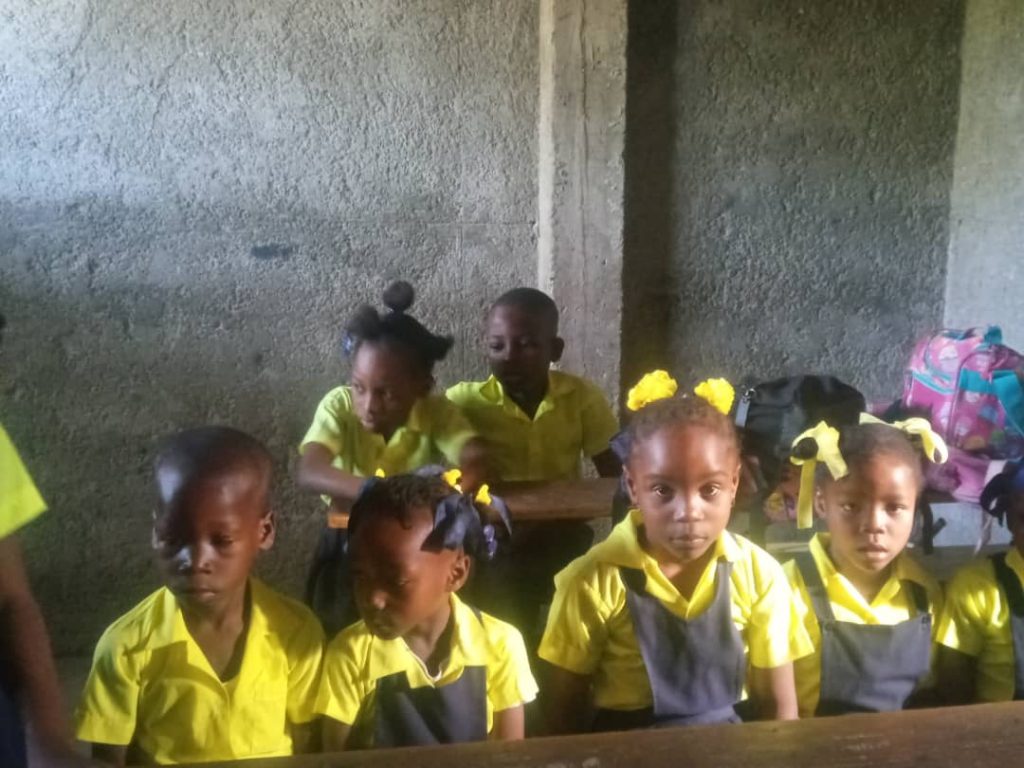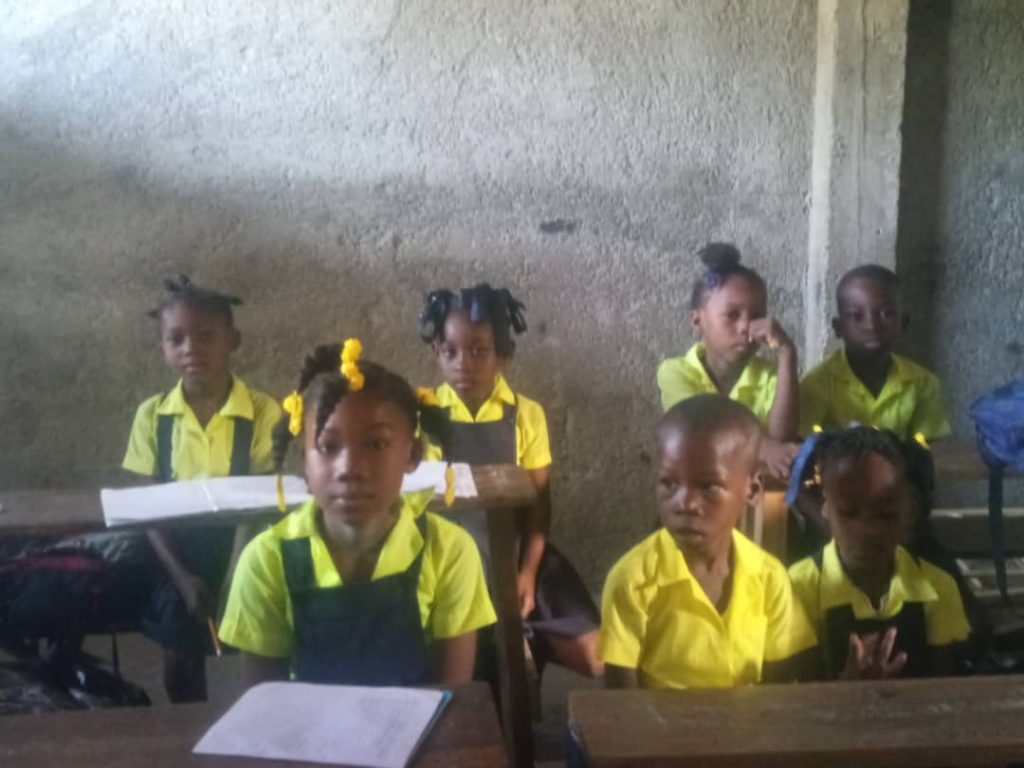The Picture of Peter Cherches
I was walking by the full-length mirror on the outside of my bathroom door when I did a double take. Instead of my mirror image, my face was a pastel portrait of me as a five-year-old; the rest of my body was as expected. I remembered that portrait. It was done in 1961, when my mother, my brother, and I spent the summer in The Catskills at The Tamarac Lodge.
One day a man came to The Tamarac to do portraits of interested guests. My mother had him do all three of us. The artist’s name was Charles Biro, and he had a history, a serious one, actually. He had been a comic artist earlier in his career, most famous for Daredevil Comics. But his pastel portraits weren’t in comic book style, they were realistic.
I hadn’t seen that portrait in years. How did a pastel of my five-year-old head replace my sexagenarian head in my mirror?
I went into the bathroom to look in the mirror above the sink. Same thing. Normal torso, pastel head.
This was really freaking me out. I couldn’t think of a plausible explanation. One mirror was bad enough, but two?
I’d have to leave my apartment and find an impartial mirror. I figured I’d go to the dry cleaner and tailor across the street. I knew they had a full-length mirror. As subterfuge, I brought a pair of pants for dry cleaning that I’d usually throw in a machine. I walked into the shop and put the pants on the counter. “Friday?” the Korean woman asked.
“Sure.”
I took my receipt, and then I turned to look in the mirror. Same thing. Pastel head.
“Excuse me,” I said to the woman.
“Yes?”
“Does my head look normal?”
She looked confused. “I don’t remember seeing you before, maybe you’re not a regular customer,” she said, “but you look fine.”
“So nothing strange?”
“You look like American,” she said.
Yeah, but did I look like an American of a certain age, or an American of a greatly reduced one? I didn’t want to bother her any more, so I called Allan Bealy, who lives a few blocks away. Allan, whom I’ve known for years, was editor of the downtown arts journal Benzene and the publisher of my first collection, Condensed Book. He answered. “Allan,” I said, “by any chance are you free for me to stop by for a couple of minutes? There’s something I need to ask you.”
“Sure,” he said. “I’m working on a new collage, but I can take a break. What’s up?”
“I’ll tell you when I get there.”
When I got to Allan’s apartment he asked me if I wanted anything to drink. “No thanks.” I said. “Tell me, how old do I look?”
He thought for a second. “Well, you don’t look your age!”
“How old do I look, five?”
“What? Of course not. Sometimes you act like you’re five, but I’d say you could pass for 58, 59.”
“So I don’t look like a kid, and my head doesn’t look like a pastel?”
“What are you talking about?”
I told him the whole story.
“That’s nuts,” he said, “are you sure this isn’t one of your stories?”
“I swear.”
“Let’s go into the bathroom and look into our mirror.”
I followed him into the bathroom. We both looked into the mirror. I saw Allan, normal Allan, and me with the five-year-old pastel head. “What do you see?” I asked.
“You and me.”
“And my head is normal?”
“As normal as it’ll ever be.”
“But I see the pastel head, the kid’s head.”
“Are you tripping?”
“Not for at least fifty years.”
“Do you feel OK?”
“I felt fine until I started seeing the pastel head in every mirror!”
“You might want to see a shrink,” he concluded.
I suspected he might be right. But maybe it was a passing hallucination. I figured I’d wait. If nobody else noticed, then it wasn’t such a big deal.
I went home and started reading a Val McDermid mystery. I got lost in the plot and forgot about my pastel-headed troubles for a while. Then I got up to make a cup of tea. I passed the full-length mirror on my way to the kitchen. I stopped and looked. Same thing.
This thing was throwing me for a loop. Was I really going crazy? I had to do something about it. I couldn’t go on this way, always seeing that pastel head in my mirror. So I went to my desk, and from atop the hutch I picked up the little bronze Buddha I had bought at an antique shop in Thailand. I smashed the mirror to smithereens with it. I’d have to sweep the shards up, but first I had to take care of the bathroom mirror. I was pleasantly surprised when I saw that my head in that mirror was now normal, so I didn’t have to smash it after all.
This was cause for celebration. I decided to go to the bar down the block for a drink. I’d take care of sweeping the shards when I got back.
When I got to the bar I took a stool and told the bartender, “Tanqueray on the rocks with a squeeze of lime, soda on the side.”
“Get outta here,” the bartender said. “You know we can’t serve little boys.”
Little Things
I generally avoid street fairs. I don’t get the point. Usually it’s the same mediocre food vendors at all of them, Italian sausages, Filipino lumpia, Colombian sweet corn arepas. Some people sell small craft items, handmade earrings, for instance, some sell scented candles and/or crystals, and there’s also lots of shoddy bed and bath products, like low thread-count sheet sets. The streets are clogged with people who consider this great fun.
I live off a main commercial drag in Park Slope, and there are several of these events every year on Seventh Avenue. If I’m heading north or south to the subway (the F is south of me, at 9th Street, and the Q and B are north at Flatbush Avenue), I have to walk through the street fair. That’s exactly what happened one Sunday in June, during the biggest one of the year, Seventh Heaven.
Sometimes during the fairs there are performances in front of certain businesses. The Brooklyn Conservatory of Music often has classical music, for instance. This time I also saw a small makeshift stage in front of the toy store around the corner from me, Little Things.
I was going to keep walking to Flatbush Avenue for the Q train, but then I noticed a ventriloquist with his dummy on the stage, sitting on a stool. I did a double take and saw that the ventriloquist was actually my next-door neighbor, and not only that, the dummy was a dummy of me, a little, bald Peter Cherches in a sailor suit. I had to find out what was going on. I waited about five minutes until his performance started.
“Hello, ladies and gentlemen,” the neighbor announced into a mic, “I’d like to introduce you all to my friend Little Petey. Say hello to your neighbors, Petey.”
Petey? I hate being called Petey. And what the hell gave him the right to appropriate me for a dummy without permission? I wondered if I could sue.
“Howdy, folks,” the dummy said. I had to admit, the neighbor was good at this; I didn’t see his lips move at all. And the voice was good, it really sounded just like me. “My name is Little Petey, and I’m tired of being a dummy. I want to be a man, a real man!”
Some people laughed. I wasn’t laughing.
The dummy continued. “I used to be a real man, but the guy who’s holding me now is my next-door neighbor, and this morning he kidnapped me and shrunk me and dressed me in this silly little sailor’s uniform and told me I was now his meal ticket, so please, don’t give him any money, it will only encourage him to keep me prisoner.”
The next thing that happened was the neighbor slapping the Petey dummy in the face. “Don’t you ever go rogue on me like that again, Little Petey,” the neighbor said. Some in the audience gasped, others laughed uncomfortably. “Now let’s give this another try, shall we?”
The Petey dummy spoke again. “Hello everybody, my name is Petey and I write funny little stories. Would you like to hear one of them?” Several in the audience let out a spirited “Yeah!” in unison.
The dummy started reading one of my stories from Masks, the one that takes place at the Key Food just down the block. This was unacceptable. Not only had the neighbor appropriated my physical likeness, he was using my material in his act.
“This must stop!” I yelled out.
Several people shushed me. One big muscular guy in a tight black T-shirt glared at me and said, “Let the dude do his act, asshole.”
Wait a minute, the neighbor plagiarizes my very existence and I’m the asshole? But I’m smart enough not to get into fights with guys like the asshole with the muscles, so I didn’t say anything else.
The neighbor now addressed the dummy directly. “We seem to have struck a nerve, Petey.”
“Don’t call me Petey. I hate being called Petey,” the dummy replied.
Wow, the dummy was becoming defiant again. I had to lend my support. “That’s telling him,” I yelled out. The guy with the muscles glared at me again.
“Well, what should I call you?” the neighbor asked.
“My friends call me Pete, strangers and readers call me Peter. Either one will do.”
“Well, then, why don’t I call you Pete?”
“That’s fine with me.”
“Well it’s not fine with me,” I yelled as I moved away from the muscle guy.
“Just who do you think you are?” the elderly woman I was now standing next to asked me.
“I’m the real Petey! I mean I’m the real Pete or Peter.”
“No, I’m the real Pete or Peter!” the dummy said.
“Thank you, ladies and gentlemen,” the neighbor said, stood up, and took a bow.
That’s it? That’s his whole act? People started applauding. Then a guy came out of the toy store and made an announcement. “Thank you all for stopping by Little Things. I’m happy to tell you we have plenty of Little Petey dummies in stock.” A bunch of people filed into the store.
I couldn’t believe it. I’d have to get a good intellectual property attorney ASAP and sue the neighbor’s ass. But I wasn’t going to just walk away without saying something.
I went up to the neighbor, who was packing up. “You bastard!”
“Hold on, hold on,” he said. “I was going to tell you. I’m cutting you in for a 50% royalty on every unit sold.”
A 50% royalty? Damn, I thought—being a dummy is a hell of a better deal than writing short stories.





